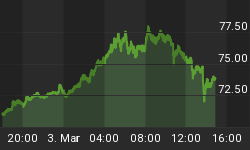"...Rising inflation in the cost of living didn't stop the Old Lady cutting interest rates in 2001, 2003 or 2005. Why change now...?"
WILL THE BANK of ENGLAND cut UK interest rates this Thursday?
Might Hillary and Barack have trouble getting together as running mates for November?
First up, the Bank of England's sole purpose in life is to target inflation. And annual inflation in United Kingdom real estate prices is now slowing far beneath the apparently magic 9% mark...

Whatever econometric model says 9% annual house-price growth is vital to the nation's well-being, the Old Lady has stuck to it since she gained "operational independence" back in May 1997.
And now falling inflation demands a rate cut...if by inflation you mean the decade-long bubble in real estate prices.
Check!
Next up, political pressure. The Bank of England is entirely independent of the elected government, of course, despite the policy team being appointed by the chancellor himself. And yet the Treasury has displayed an uncanny knack for second-guessing how the nine-member committee will vote.
"It has not gone unnoticed that the most successful forecaster of changes in [BoE] policy direction since 1997 has been Mr Ed Balls," as Stephen Lewis at Insinger de Beaufort wrote of the Treasury's chief economic advisor two years ago. "Before each of these events, he pops up on a public platform to approve the shift in advance. His insight into what is supposed to be an independent decision-making process is remarkable."
Fast forward to last month, and Ed Balls - now in charge of education - seems to have retained his magical powers of foresight, revealing live on breakfast TV that "our interest rates are low and are coming down."
Spooky, no?
"The Bank of England has got flexibility," Balls went on. "Inflation is low. We will see what happens in the next few months."
Won't we just! But not before the current chancellor, hapless Alistair Darling himself, sets the stage for a rate-cut, too.
"Because of the fact that we now have low unemployment," said the hopeless one at the end of January, "[and] we've got historically low inflation, low levels of interest rates and mortgage rates, the Monetary Policy Committee has room for maneuver."
Room for maneuver? Put another way - as the only US academic on the Old Lady's team did late last month - "worrying about inflation at this time seems like fiddling while Rome burns.
"The evidence from the housing market, and especially the commercial property market, is worrying," David Blanchflower gushed. "Consumer confidence is low in the UK. Interest rates are restrictive at their current levels and that is why I have been voting for cuts."
Poor Mervyn King! The Old Lady's chief pooh-bah stuck out like a sore thumb by refusing to slash rates when Northern Rock collapsed last summer. He's previously complained that "people in sensitive positions" shouldn't speak out on base-rate policy.
But then, people in sensitive positions are there because they like to decide what happens.
And everyone knows the Bank of England simply MUST cut interest rates...because its sole task is to defend "price stability".
"Mortgage approvals in December at 73,000 were below the lowest point in the 2004-5 housing pause and point to further housing weakness," writes David Smith in the Sunday Times. "Consumers are cautious and so is business. The CBI said January retail trading was the weakest for 15 months. Consumer confidence did not improve as much as it normally does between December and January, and remains weak."
Never mind that a new survey from Citigroup-YouGov says the Great British public now expects inflation to reach 3.3% from the last survey's 2.7% - "well above the 2% official target" as Smith admits.
Rising inflation in the cost of living didn't prevent the Bank of England from cutting interest rates in 2001, 2003 or 2005. Why should the Old Lady break the habit of her (independent) lifetime now?
















